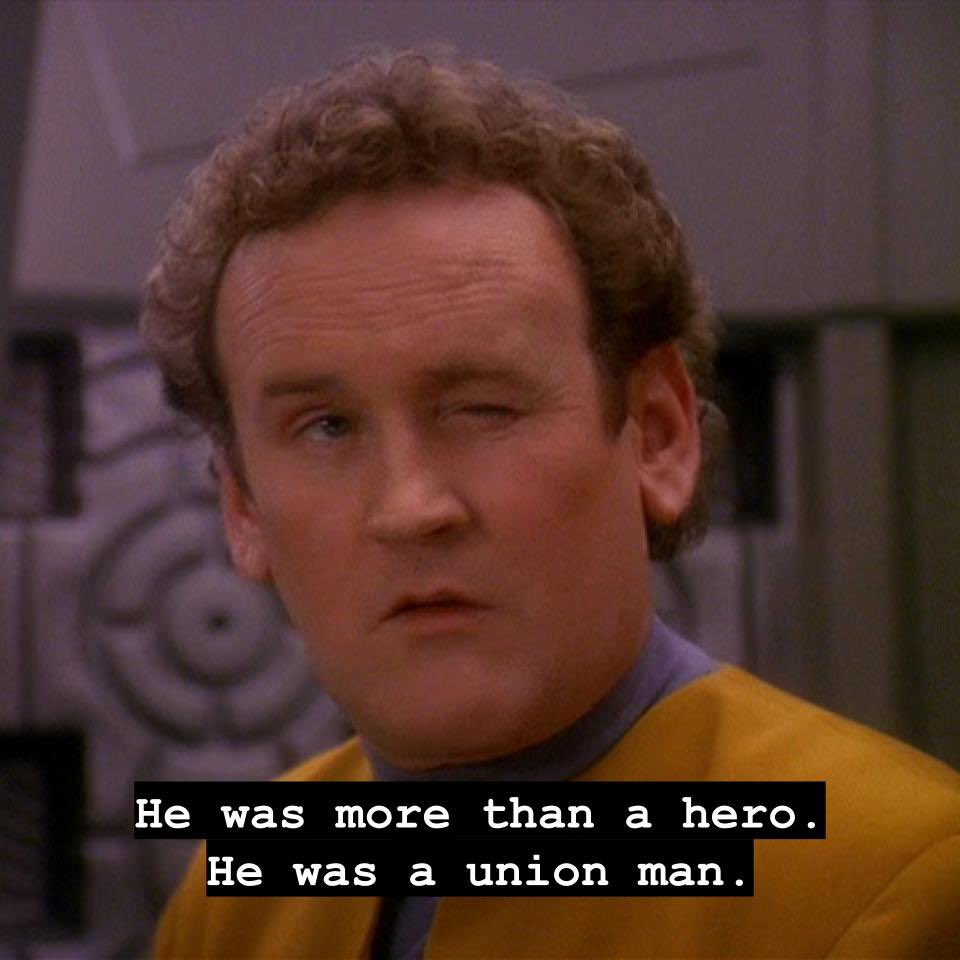- cross-posted to:
- finance

Put a hard stop to the purchasing of homes by corporations/businesses and people with no intention of living in them.
You should need proof of intention to live in the home within a reasonable amount of time after the purchase in order to make the sale. The flipping of homes for profit by those with cash and more money is a detriment to the market and the american dream for the rest of the population trying to get a foothold.

Rather than a hard stop, I think it would be a good idea to significantly increase taxes on real estate no one is actively living in, and use the proceeds to subsidize construction of new housing.

This seems to be the most reasonable. Disincentiivize multiple property ownership rather than outright ban it. The ones who can eat the cost will pay taxes and the rest will just bow out of the market.

But housing is a need and people will keep paying any price to not be homeless, this feels like it leads to massive corporations still owning all of them and paying large taxes they can eat short term and raise to massive prices of rent. Maybe they dump some stock but I’m just not sure it does much other than diversify smaller investors that used property for assets

this feels like it leads to massive corporations still owning all of them and paying large taxes
Then the taxes aren’t high enough. That’s an easy fix. It’s one of those times the state doesn’t want to optimise the rate for total tax earned but to make paying it for any length of time actually prohibitive. Make it so that they can’t possibly raise rents high enough to cover those taxes and they’ll understand quickly.
The other side of the equation is a bit harder, and that’s housing overstock: Companies will be sitting on housing they can’t rent out due to lack of demand for housing. One idea would be to allow them to lease homes out to municipalities for literally nothing but tax forgiveness and the municipalities can use that to house the left-over homeless, unemployed, etc. Call it a half write off. Oh those leases need sensible minimum durations, I’d say five years is a good start.
smaller investors that used property for assets
You can easily make smaller investors be hit significant less by it by scaling the tax to the number of vacant housing units. Own a second home you rent out and spend four months finding a renter you like? Fine, pay ten bucks. Do that to 1000 housing units? Pay 10000 bucks for each.
Yes, those kinds of rates are right-out financial violence. That’s the point: The state has to step in as the larger bully to keep the small ones in check to avert market failure.

Your argument falls flat once you remember that there is in fact plenty of homeless people and there will always be those who will choose not to pay irregardless of logic or desire of self preservation. And while yes, any privatization of housing isn’t really any good, but you don’t have to make it impossible for them to make money off of it. You just play their own logic against them and keep it just on the line where they will ultimately go for something else to profit off of other than housing as their returns and infinite growth will eventually lead them into microscopic margins so any variability becomes a threat to the bottom line.

Rather than a hard stop, I think it would be a good idea to significantly increase taxes on real estate no one is actively living in, and use the proceeds to subsidize construction of new housing.
An alternative is to replace property tax with a land tax. That way instead of penalizing people for building more housing, they are penalized for holding onto land that could be used to house more people (or whatever other use is in mind).

331.9 million (2021) US Population / ~142 million housing units in the United States (2021) = ~2.34 people average needed per dwelling to fully house everyone.
According to Statista: " The average American household consisted of 2.5 people in 2022. "
If people did not need vacation homes, and investment property… We appear to have enough housing for everyone already.
I’m working under the assumption hotels/motels are not included… there should be plenty of those to house people on vacation, and leaves plenty of room for the ultra wealthy to still have their vacation homes.
Sources: Statista, US Census, Google

its maddening there are plenty of homes out there completely empty

well that doesn’t sound like free market capitalism!

This situation has turned into a real cock for so many people.
The place I got my mortgage through sends out emails regularly with updates on my home value, current rates, and other assorted stuff. I originally bought this house at the tail end of 2020. It’s not the best house around, still needs work, but it had the room we needed, was in our budget (220), and the payment was low because the rate was great (2.75). Our original plan was stay here a bit, get rid of some debt, and then maybe try to find what we’d like to be our forever home, wherever that may be (we’re 44).
That idea went south in a hurry. What once probably wouldn’t have been worth sinking extra money into to fix, may now be the only choice. The aforementioned newsletter has a section where it shows what you could “save” at current rates by refinancing or taking cash out. The most recent one said I could “save” -$213400, meaning if we refinanced to take cash out to fix things up right now, it would cost us the entire price of the home yet again, on top of what the home and interest will already cost. Where a home in the 400’s was achievable before, our home in the 200s would nearly not be now.
I feel terrible for people having to try to achieve home ownership at this point, or probably for the rest of the decade. On the one hand, I understand how fortunate I am to have gotten in when I did, and to have a home period; on the other, like many, I’m now essentially trapped, which has the ripple effect of keeping both rates and prices high because most people aren’t going to trade a sub-3% mortgage for 7%+, assuming they can even find a place to go at this point.
Add in corporations branching out into a new area to do their level best to eliminate the concept of ownership for the majority of people, and politicians focusing on the more serious global issues like who goes in which bathroom, and my hope for the future couldn’t be squashed any further if you put it in a hydraulic press.

Real estate will crash, eventually. Hard to predict exactly when and why, but if history is any guide, a market crash eventually is practically inevitable. It could conceivably happen relatively quickly for any number of reasons, but crash it will.
That doesn’t necessarily mean it will become readily affordable - when real estate goes south, a lot of other stuff will be crashing with it. History books are full of monumental calamity. There’s no reason to expect that to change.

And corporations will be right there to buy it all up and further make it worse.

Hey are you me? We moved temporarily to a place with a far longer commute with the plan that we’d ride out the silliness of the market for about 5 years. That was in 2017. They’ll fucking bury me here lol.

I don’t really have any idea of owning a home for the rest of my life. Even making enough money to potentially get close seems impossibly out of reach.

First time home buyers in the US don’t need any cash for a down payment or closing costs. You can roll it all into the mortgage. This is how the majority of first time homebuyers get started. You just need a good credit score and enough income to qualify for the mortgage - which is impossible in some cities and easy on a McDonalds wage in others.
This is the best summary I could come up with:
The typical American cannot afford to buy a home in a growing number of communities across the nation, according to common lending standards.
“The dynamics influencing the U.S. housing market appear to continuously work against everyday Americans, potentially to the point where they could start to have a significant impact on home prices,” ATTOM CEO Rob Barber said in a statement Thursday.
ATTOM’s data adds to a growing body of real estate research in recent years that highlights the lack of affordable housing .
Factoring in a mortgage payment, homeowners insurance and property taxes, the typical home priced today would require 35% of someone’s annual wages, ATTOM said.
Cities with the most unaffordable homes include Los Angeles, Chicago, Phoenix, San Diego and Orange County, California, ATTOM said.
Communities surrounding Cleveland, Detroit, Houston, Philadelphia or Pittsburgh have the most affordable homes compared with median salaries for residents there, according to the firm.
The original article contains 486 words, the summary contains 151 words. Saved 69%. I’m a bot and I’m open source!

I wonder if they consider Lansing to be a “community surrounding Detroit.” Housing is much cheaper here than anywhere else I’ve seen

Wow, I just bought a house three months ago, I guess I’m part of the 1%. #feelsweird

Lemmy leans tech and higher income, so yeah, I’d expect a higher proportion.

(Coughbragcough)

Oh I’ve a solution for this the average American can all go and try to buy home in that 1% are so it also becomes unaffordable. Problem solved.

